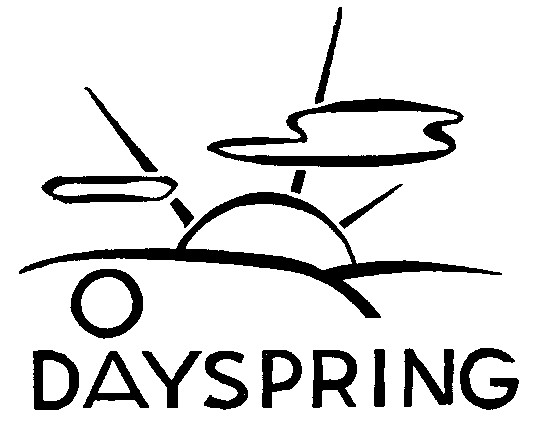From a reader…
QUAERITUR:
A 12 year old asks: Earth day is coming up and I have a question: Is being ecological a sin? She thinks is a sin because she thinks it is caring too much about the earth.
GUEST PRIEST RESPONSE: Fr. T. Ferguson
When I was in high school, I was part of a group that had the honor of going to a forensic tournament in Gatlinburg, Tennessee. Seven of us, four boys and two girls travelled in a van down to Gatlinburg and stayed in a large motel with hundreds of other kids, mostly from the south. In the room two doors down from us there were kids from a public school in Kentucky. Their room became the “party room.” All in all, it was pretty tame – no drugs or alcohol, but lots of pop (soda, or coke depending on where you were from), pizza, chips, etc. Our rooms stayed pretty clean, because we spent our free time in the “party room.”
Where are you going with this? You ask.
I’m getting old. I’m now of an age where I almost HAVE to answer a question by telling a rambling story. Sit down, keep listening…
When we got ready to leave, our teacher and chaperone learned of the party room. She demanded that we go help clean it up. “But,” we protested, “It’s not our room, and besides, it’s a motel. It doesn’t belong to us, and they have people that will come in tomorrow and clean it.” That didn’t matter, and that didn’t convince her. We still have to go help pick up the empty pizza boxes, vacuum, get the trash in bags and get it somewhat orderly. It was the right thing to do.
This earth is not our home. We’re not meant to think of it in terms of permanence. In a way, it’s like a motel. We’re just passing through – our real home is elsewhere. That doesn’t mean that we should have no care or concern for this earth and the beautiful things God has given us here. It’s the right thing to do.
If our concern for the environment reaches the level that we places creation above the Creator, if our concern for the environment compromises our obligations to each other and to the demands of natural and divine law, it can be sinful.
If we start treating our transitory home like we’re meant to be here for all eternity, that can be sinful.
If we do our best to limit our impact on our environment, if we choose to be careful and eat food grown on local, family farms instead of large farming corporations, if we lubricate our guns with sustainable linseed oil, and drink our martinis out of glass rather than plastic stemware, that’s not sinful. That’s just being respectful.
































There is a major difference between an environmentalist and a conservationist.
Your environmentalist thinks that nature is fine the way it is, best not messed with, and that the world would probably be better off without man. Your conservationist thinks that nature benefits from man’s interaction and that man has a duty towards nature, not simply to use it up but to cultivate it to become something greater.
My favorite example on this is overgrowth in forests. Your conservationist wants forestry projects that remove overgrowth, underbrush, and limited logging as this cuts down on the severity of forest fires. Environmentalists oppose these forestry projects, even though to do so results in worse fires, because such projects are “unnatural” to the ecology of the forest system.
To use the hotel room example — the environmentalist would want to leave it exactly as it was found, while your conservationist would want to leave it better than how it was found.
The issue is one of responsible stewardship. These things have been entrusted to our care, and we have a duty to use them wisely.
My one concern is using linseed oil as a firearm lubricant. Linseed oil is great for wood stocks, and polymerizes beautifully. It wouldn’t help inside the firearm, as it would gunk up the internals. My preferred sustainable gun oil is a soybean oil used in fracking. It works wonders.
This is wonderful! And about making a point by telling a rambling story, well, if it was good enough for Homer, the rest of us can settle down to enjoy the tale.
I have no problem taking care of the environment, not polluting and simply not trashing nature but I have a problem with a Gaianist telling me HOW I should take care of my own property because they seem to think they know better. I own some decent property and have a home. I take care of it and all the life within its borders the way I see fit.
Ditto Lurker59. Every week, along with the Scout Oath and Law, our Scouts recite, from memory, The Outdoor Code: As an American, I will do my best to – Be clean in my outdoor manners, Be careful with fire, Be considerate in the outdoors, and Be conservation minded.
If I can put a Catholic spin on the principles of Leave no trace, we should leave no trace we were on this earth except for our corporal works of Mercy.
Too much to put in a combox; but the underlying elephant is that pagans use this so called environmentalism to draw souls further from God. In our area, there is even a group dedicated (with money. Other people’s money), to installing “environmental” groups in local churches. Some of it is harmless, but the influence on children is diabolical. Those void of genuine religion, (Christian and otherwise), seek to deify the planet. Best defense is that line “worship the Creator, not the creation”.
All that said; the guest Fr. answer is not bad.
St Thomas puts it thus: God is the owner of everything, but certain people have use of certain things.
In the early days of the settlement of what became the US there were two groups–Puritans and Epiacopalians. The Episcopalians considered themselves to have arrived in what was almost Paradise. The Puritans, following their philosophy, thought they had to conquer nature.
Environmentalism can be a problem when taken to extremes, like those who say we shouldn’t have children because they will be a burden on the earth’s resources (and usually, of course, they are not suggesting we do this by celibacy or abstinence but by promoting contraception and abortion). You have to ask who they think they are “saving the planet” for if there are to be no future generations! But there is a sense among some that the earth would be better off without mankind.
I think it’s entirely right though that we treat our natural environment with respect, don’t waste or pollute more than we must, conserve habitats for wildlife, treat animals humanely, and so on. There’s sometimes a bit of a knee-jerk reaction against anything perceived as “eco”, and an association of it with left-wing politics, which maybe isn’t helpful.
I’m a great believer in observing the now-neglected Arbor Day, acknowledging ecological conservation as a sound and civic-minded thing to do, instead of the more Gaia-worship-tainted Earth Day. Only trouble is, the date of Arbor Day varies from state to state, so it’s next to impossible to celebrate it on a national scale. (Earth Day is fixed, not coincidentally, to coincide with Lenin’s birthday.)
I have no trouble, as a Catholic, observing Earth Day. Care for God’s Creation is one of the principles of Catholic Social Teaching. USCCB has this to say: http://www.usccb.org/beliefs-and-teachings/what-we-believe/catholic-social-teaching/care-for-creation.cfm.
For me, caring for God’s creation includes being mindful of purchases I make– how production impacts the environment, are the workers paid justly, what materials are used, etc. In our household we try to use non-toxic products for cleaning and yard/garden maintenance. Buying a hybrid car is above our means, but we have chosen to drive small cars with better gas mileage.
Even so, it feels like it’s never enough… These acts and decisions do not surpass my practices as a Catholic, they are simply a natural fit in Catholicism.
As Lurker 59 points out there is a difference between conservation and environmentalism. As for Earth Day, others here note Gaia and Lenin’s birthday to which can be added that one of the founders, Ira Einhorn, murdered his ex-girlfriend and kept her body in his closet. Planting a tree on Arbor Day, and other such efforts, seems to be the way to go.
I lived for many years in hell – environmentalist California. I still have property there and must still contend with the true believers. Much of my own background philosophy on this comes from two sources; my generations of cradle Catholic family and my generations of American Indian family. My mother brought me up in the first; my father brought me up in the second. So, I am a good steward who strives to live in harmony with God’s creation. This means living simply, using only what is necessary, limiting waste and reusing what can be reused. (Aluminum foil looks like waste before I take it to the recycling center.) I consider what it must have been to have lived in the Great Depression, or having to hunt and gather all my food and supplies (which I actually am able to do if necessary, even in the desert environment of my ancestors), and give thanks to God for His bounty. We live too much for convenience in our modern, first world society. What we waste is what rightfully belongs to the poor and we will be held accountable.
I lived for many years in hell – environmentalist California. I still have property there and must still contend with the true believers. Much of my own background philosophy on this comes from two sources; my generations of cradle Catholic family and my generations of American Indian family. My mother brought me up in the first; my father brought me up in the second. So, I am a good steward who strives to live in harmony with God’s creation. This means living simply, using only what is necessary, limiting waste and reusing what can be reused. (Aluminum foil looks like lace before I take it to the recycling center.) I consider what it must have been to have lived in the Great Depression, or having to hunt and gather all my food and supplies (which I actually am able to do if necessary, even in the desert environment of my ancestors), and give thanks to God for His bounty. We live too much for convenience in our modern, first world society. What we waste is what rightfully belongs to the poor and we will be held accountable.